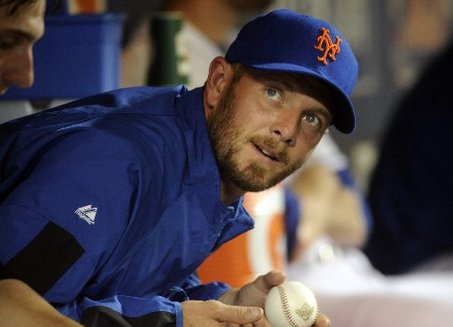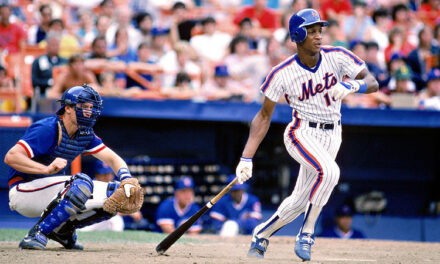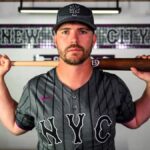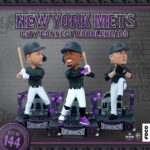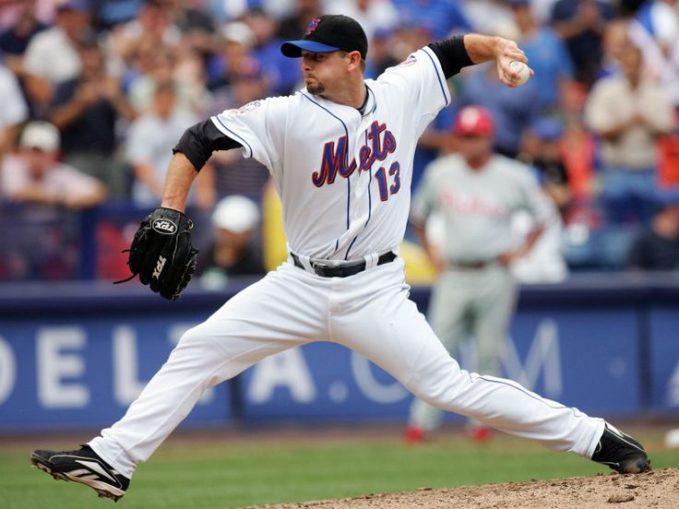
Over the last thirty-plus years, baseball has witnessed some of the most dominating back-end relievers to ever play the game.
With closers taking a more predominant role during that span, the number of relievers to be considered for enshrinement into Cooperstown will continue to be discussed and considered among the BBWAA for years to come.
Two such relievers appear on the ballot this winter, carrying their own merits and accomplishments throughout their distinguished careers.
When looking at their career numbers side-by-side, a bigger picture tends to form as to who of the two was more dominant.
Player A: 853 G, 2.31 ERA, 187 ERA+, 2.73 FIP, 0.998 WHIP, 11.9 SO/9, 27.7 bWAR, 16-year career
Player B: 1035 G, 2.87 ERA, 141 ERA+, 3.08 FIP, 1.058 WHIP, 9.4 SO/9, 27.9 bWAR, 18-year career
The success for both is clearly visible when looking at the above numbers. Though, it’s tough to argue that Player A doesn’t have substantially greater rate stats than Player B.
While Player A pitched in nearly 200 fewer games than Player B, his bWAR (Baseball-Reference WAR) is nearly identical in two fewer seasons played than Player B. The ERA+, FIP, WHIP and strikeouts-per-nine are hard to ignore on Player A’s resume, with some of those numbers among the all-time leaders.
So, who are they?
Player A: Billy Wagner.
Player B: Trevor Hoffman.
The two closers appear on the Hall of Fame ballot for their third time, but only one is trending up towards the needed 75 percent threshold to be enshrined.
Since 2016, Hoffman has seen his voting percentage steadily rise; from 67.3 percent in 2016 to 74 percent last year. As of Friday morning, Hoffman has appeared on 103 of the 127 public ballots (78.6 percent) that’s kept track via Ryan Thibodaux on Twitter.
Conversely, the curious case of Billy Wagner’s candidacy, or lack thereof, is puzzling.
He garnered just 10.5 percent of the vote in 2016, followed by a decrease of 0.3 percent in 2017 at 10.2 percent. According to Thibodaux’s Hall of Fame tracker, Wagner has only received 14 votes thus far, leaving him at 10.7 percent. According to the tracker, Wagner has been eliminated from pursuing any comeback to reach the 75 percent threshold for induction this year, though, he still needs roughly seven votes to stay above the five percent mark, which is the minimum to stick on the ballot.
It appears that many voters still adhere to voting for players that have posted the vaunted holy grail of baseball stats: 3,000 hits, 500 home runs, 300 wins, etc. This looks like the case when evaluating Hoffman, who finished with 601 career saves, second only behind Mariano Rivera (652).
Though, if voters are only clinging to the save stat as the reason behind their selection, they’re doing an incredible disservice by overlooking the complete body of work.
Take this for example. Among retired relievers (min. 500 games) only two have posted an ERA+ of 185 or greater:
Mariano Rivera and Billy Wagner.
Among retired pitchers who tossed at least 900 innings, Wagner’s 11.9 strikeouts-per-nine is the best in baseball history. Wagner and Kenley Jansen are the only relievers to each record three seasons of 100+ strikeouts with a sub-2.00 ERA.
Wagner, of course, has ties with the Mets. He signed a four-year, $43 million deal with the club in the winter of 2005 and appeared in 183 games from 2006-09, posting a 2.37 ERA, 1.054 WHIP and 10.9 SO/9. His 101 saves are good for 5th all-time among Mets career leaders, and his 422 career saves are 6th all-time.
The story of Wagner is one of overcoming extreme obstacles. Growing up in a broken home and moving from relative to relative, Wagner used sports as a way to channel aggression and showcase his talents to those who thought he was undersized.
After breaking and re-breaking his right arm as a kid, Wagner taught himself to throw left-handed, an improbable thought considering he became one of the hardest throwing pitchers to ever play the sport.
I had the privilege of speaking with Wagner earlier this week, where we discussed his upbringing, tenure with the Mets and his thoughts on his Hall of Fame candidacy.
MMO: I read that you were a natural-born right-hander and when you were a kid you broke your right arm twice. Is that how you transitioned to throwing left-handed?
Billy: My family was very big into athletics and we were always on the go. When I broke my elbow, I was playing in the front yard with a friend of mine. One-on-one football, I guess. And of course, he broke my right arm. Being a kid who’s active, I started playing left-handed.
I get my cast off and, as my mom tells it, a couple of weeks later I’m on the monkey bars and I fall and break my right arm again. Over that time I just learned how to play and do everything left-handed.
Uniquely, I don’t really do much left-handed unless it’s throwing. I hit left-handed and I throw left-handed but I can’t write or use a fork left-handed. I can’t do anything else with my left hand so it was definitely a blessing because I don’t know how many people can go from being a natural righty to a lefty throwing 100 mph.
MMO: That’s amazing to think about when you consider how hard you ended up throwing and basically having to teach yourself to use the other hand at a young age.
Billy: It was one of those things. I don’t know how long it took to develop because when I was in high school I had a resilient arm. I played quarterback and I wouldn’t call myself a pitcher, I was a thrower. I played catch and I was always throwing something but I wasn’t a really hard thrower in high school. I was more of an effectively wild pitcher than anything else.
I think it was just a matter of throwing and building up arm strength. I was maybe 78 mph in high school and then I went to college and matured, and my freshman year I was throwing 95. It’s hard to fathom but maturity and growth have something to do with it.
MMO: Who were some of your favorite players growing up?
Billy: Dale Murphy. I was a huge Dale Murphy fan and I grew up on TBS. My family were die-hard Braves fans: Joe Torre, Chris Chambliss, Dale, Rafael Ramirez, Gene Garber. I grew up watching those guys and both my grandparents were die-hard Braves fans.
My grandmother would sit up at night at all hours when they were on the West Coast and she’d watch the games and do the scorebook. She was a die-hard. She collected baseball cards; I think she’s the reason I became a big fan of baseball. She was just an avid fan.
We would set up and watch games and she would just talk about the game with a passion. Just the nuances of it like how Vin Scully talked or how guys spoke about the game.
It was just great and I think it wore off on me, just loving the game and how to go about it. They [grandparents] showed me how to play and they showed me the humility of baseball.
MMO: I read that you went to Ferrum College with the intention of playing football until your coach saw you throw a baseball. Can you talk a bit about that decision?
Billy: It was funny, I was going to play baseball. That’s just the way it was. Football was probably my way of anger management. I got some starts as a freshman in college on special teams and I got quite a bit of time as a defensive back.
After my defensive backs coach saw me pitch he quietly came over and put his arm around me and said, “Hey, you’re not going to play football, you’ve got a future. You’re not going to the NFL, you may be going to the major leagues. This is what you need to do. If you come out I’m not going to let you hit but I’m going to run you to death.”
It seems like during my career there was always someone around, there was always somebody there. Coach Davis was my defensive backs coach and he thought enough of me to say, “I think baseball is your thing.”
Those types of people have always been around in my life to kind of help guide me and help me make the right decisions that have influenced my career, obviously.
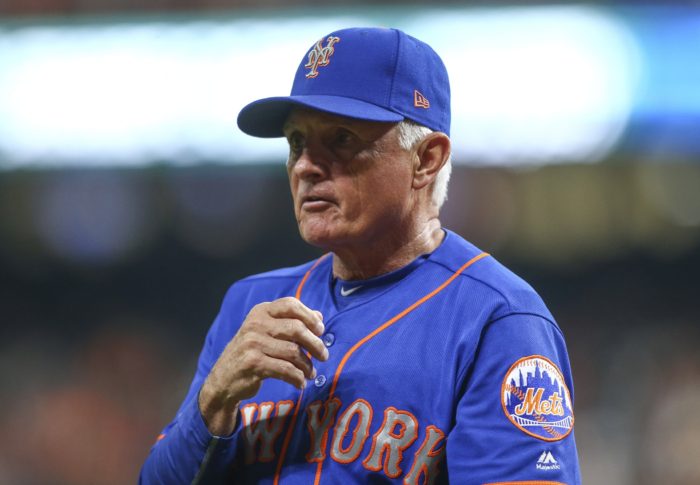
MMO: You were a starter in the Astros’ organization for the first several seasons in the minors. When did they approach you about converting to the pen, and what were your initial reactions to it?
Billy: Well, it was funny, I didn’t like starting. I liked starting on the day I started, but I didn’t like starting the other four days because there was nothing for me to do. I’m a high-intensity guy, I like to be involved. I started and I held my own, but by no means was I going to the big leagues as a big-time starting pitcher.
When I got called up in 1996, our closers Todd Jones and John Hudek had gotten hurt, and they really didn’t have anybody. Terry Collins just kind of threw me out there. I had done it in college where I never thought any difference on innings or anything, just go out there and get three people out and keep pitching until they tell you to stop or the game’s over. I pretty much just went about that mindset when I was closing.
When I went to Puerto Rico [Winter Leagues], they wanted me to start again. Terry got fired and Larry Dierker got hired. Larry came down to Puerto Rico and asked me, “Do you like starting?”
I said, ‘No, I like closing.’
At that time me and Hudek were going to be kind of co-closers, then it just escalated from there where I started getting more time closing and that just seemed to be my thing.
MMO: Your first manager is someone Mets fans know well in Terry Collins. What were your thoughts on Collins as a manager in Houston?
Billy: He was very good for me, he took care of me. Being young at the time I didn’t say anything, so I was just happy to be there. If he told me to pick up the balls I was going to do that too. My job was to go out and do my job when I was asked to do whatever.
Terry was always great to me. He was fiery and I enjoyed that passion about him. Like a Larry Bowa, I like that. They were mouthy and hard-nosed and they competed from the bench and I liked that. I never had a problem with that type of managing and stuff like that.
Terry took care of me, even when I was first closing and blew a save or had a tough game he never, never tried to throw me under the bus. He was very conscious of just saying, “He’s new to it and we’re working through it.” So it was good, he gave me confidence and kept putting me out there and that’s a big thing in itself to have a manager keep putting you out there.
Plus, I had probably the greatest team to come up with in Doug Drabek and Xavier Hernandez. I had an older team and so when I messed up they were there to talk me through it and help me get through things.
Drabek had a shutout going against the Marlins down in Miami and I think he had thrown 7.2 innings. I came in got out of the eighth inning, [I] came into the ninth and I threw two pitches and gave up back-to-back home runs to Devon White and I think Jeff Conine. I’ll never forget he met me at the steps and said, “Hey, I want you here tomorrow.”
It’s those types of things that as a player and as a teammate you go, not that you’re trying any harder but they have your back and you’re always going to be ready for them. If you’re hurting a little bit you’re going to suck it up to go back out there and get that win.
It’s just something you do and that was the type of team that I initially came up on and you had a family feel in Houston early for me.
MMO: You speak of the family feel and the way the Astros helped acclimate you to the big leagues. Being on a veteran-laden team must’ve been good for you early on.
Billy: Darryl Kile, Todd Jones, that was different. Back in the day, you wouldn’t have closers talk to you. It’s funny, Todd Jones and I were friends but he wasn’t going to go out of his way to say you could do this better, or you should do that. As a closer, he didn’t want me taking his job. Nowadays, I know when I got going I would talk to Brad Lidge and Octavio Dotel because the only person who’s going to take my job is somebody because I wasn’t doing mine. Those were the things that I thought about at that point, so it was different. Xavier Hernandez, Mike Magnante, and guys like that, took care of me.
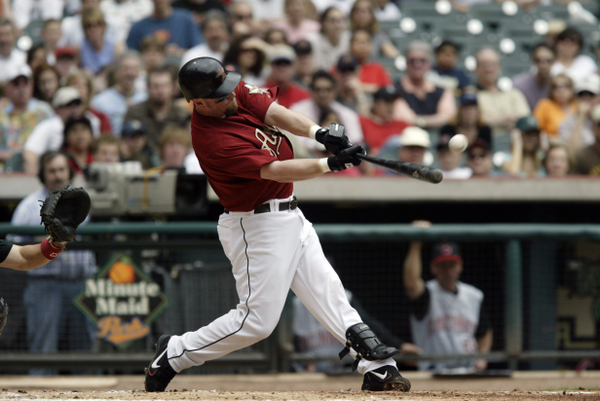
MMO: Is it true that Jeff Bagwell was the one that suggested you use “Enter Sandman” as your entrance music?
Billy: Yeah. It’s funny, at that point I wasn’t knowledgeable about a lot of those things. When I came out at the Astrodome they would play George Strait and stuff like that. For me, I was happy they were doing anything. I’m a low man on the totem pole so it wasn’t like I should really be sitting there saying, ‘You’ve got to play this or that.’
When Bagwell steps up for you, he’s got a little more clout than I did.
MMO: In 2003, you, along with five other Astros pitchers, made history in throwing a combined no-hitter against the Yankees in the Bronx. Where does that moment rank for you in your career?
Billy: I had never really sat down and put that much thought into it. It would have to be in the top three moments. I know that when I was going through the draft, the Yankees told me they never draft anyone under six-feet tall. So my first appearance against the Yankees was going out there throwing the no-hitter, so, sucks for them! [Laughs.]
MMO: I remember that it was a tough time for you being dealt to Philadelphia, and there were certain comments made that led to a players’ only meeting. I read an excerpt in your book (A Way Out: Faith, Hope & the Love of the Game) where you talked about that time and how it was a big learning experience for you. Can you talk about the takeaway from all of that, and what you learned from it?
Billy: What I took from it was that sometimes being a leader doesn’t mean that you’re liked. Sometimes you’re on an island and sometimes you can’t worry about if everyone likes you. And it sucks, that whole thing there stunk. But I would do it again. I don’t know if I’d change what I said, I just think it was something that needed to be said that people took.
I think those guys took it as a slap in the face and sometimes it sucks. Sometimes those things suck and being held accountable and showing up and doing things, you just can’t do that.
For me, I didn’t think of myself as the leader but I also know that at that point that’s the way I saw it and way it came out and they didn’t like it.
MMO: You signed with the Mets in the winter of 2005. Looking back at your overall tenure in New York, how would you describe your time here?
Billy: I enjoyed it. The biggest thing to get used to is always the media coverage because it’s really easy to take things out of context. That’s the thing I learned, you have to be careful with what you were saying because it can be misconstrued as being anything the media wanted it to be. If they wanted you to be seen as being a racist, it can be that way.
You have to be very careful and I learned that real quick when Paul Lo Duca went through some things up there. It was just one of those things that it was a definite learning experience to know how to handle a few things.
MMO: Obviously, that ’06 season was a special one and remembered fondly by fans. In your view, what was it about that squad that made it so dominant?
Billy: I tell you what was unique about ’06 was the fact that our bullpen was so deep. It was the good and the bad, I guess. I mean, at the beginning, it was you could go six innings and the game was over because you just had so many options to go to.
2006 was probably the best offensive team and one of the toughest bullpens until the end and I think we all just got worn down a little bit.
That was a fun team to be on because [Tom] Glavine set the tone. The big thing was we really didn’t really get to see Pedro [Martinez], because Pedro was hurt off and on. If you have Pedro in that [rotation], all of a sudden it becomes a whole different ballgame because when he stepped up it was game on.
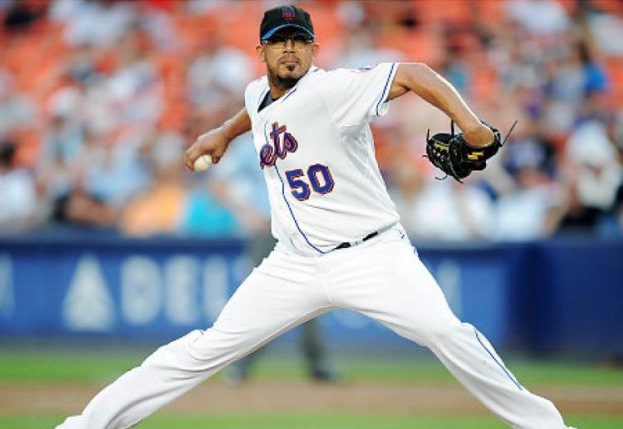
MMO: That and losing Duaner Sanchez was a huge blow.
Billy: That 3 AM taxi cab incident? Talk about taking some mojo out of your team.
MMO: I spoke to Lo Duca in the spring, and he believes that if you guys didn’t lose Sanchez you would’ve been in the World Series.
Billy: He and [Aaron] Heilman, you can never have enough. But those guys made it really easy for me to get the ball.
Most times they already faced the tough guys and I didn’t have the tougher lineups to deal with.
MMO: You had your struggles in the postseason that year, though, when you look back at Game 7 of the NLCS with the score tied at one in the ninth, were you surprised that you didn’t get the call into the game?
Billy: Well, yeah, I was. But I’ll be honest with you, at that time the guy that was throwing the ball the best for us was Heilman. I was up and I was ready and you would suspect that I was going to be in there. I also know that Willie was going with what he felt was his strength at that point. I think he knew that we were probably going to stay tied and I think he was trying to give length to that game and I really think I would’ve done the same thing.
I know Heilman ends up giving up the home run but I could’ve very easily been that guy. I’ll be honest with you, I gave up a home run to [So] Taguchi in Game 2 that lost the game, and then I came in the night before and I pitched. I think I pitched three out of the seven games, and I think I hit the wall and I think he [Randolph] was trying to give me space. I think Heilman was the best guy right there.
MMO: I read from your memoir that you were nervous most of the time coming out of the pen. How did you combat that over your impressive 16-year career?
Billy: Just going out there and doing it. Really that’s all you could do; you kept going out there with that fear of failure. I think [Dennis] Eckersley’s motto of that fear of failure was that motivation to compete. My fear of that was just going out there and doing it, being able to find a way to get it done.
MMO: Did you find that the nerves and fear lessened or got any easier to deal with over the years?
Billy: I don’t know if I’d ever say it got easier. I think I knew how to handle it at times. I always had that apprehension.
As a closer, Trevor [Hoffman] and Mo [Rivera] had a way that they just made things look really like it was not that big of a deal, just easy. God bless them because I just never had that. I was a wreck the whole time! It was never easy for me because I didn’t want to disappoint.
I wanted to always get it done and I was never afraid to say, ‘I stink, I stunk it up or I did this, or I did that.’ It was just one of those things where I had to just battle through.
MMO: You’ve seen my tweets in support of your Hall of Fame candidacy. You’ve mentioned to me in the past that you don’t think the numbers are what’s holding you back. In your view, what is it that’s giving pause to writers?
Billy: I’m sure there are some hard feelings on some of the media. I was always a black and white guy, there was never a gray area which even my wife says might’ve helped me in a lot of ways. I’m sure I rubbed some people the wrong way because I wasn’t afraid to say what I felt. I’m sure that has something to do with it.
I have a hard time believing that the numbers I put up somebody would go,”You shouldn’t get into the Hall of Fame because you didn’t throw 1,000 innings, or didn’t have this many saves.” The numbers just don’t support that action from what they’re talking about. You can only say that so long until you realize that it’s a bluff.
The Astros [teams] that I was on, are gone. You don’t have that organization that’s backing you like [Craig] Biggio and Bagwell. Being a reliever, I don’t have that backing. They’re not going out and doing anything. For Trevor and Mo it’s a little easier, granted, they were great players and should be in the Hall anyway.
I think the thought process of they have support behind them and have their beat writers. I think the beat writers that I had are now in St. Louis, guys like Richard Justice. I just don’t think I was well-liked as those guys were.
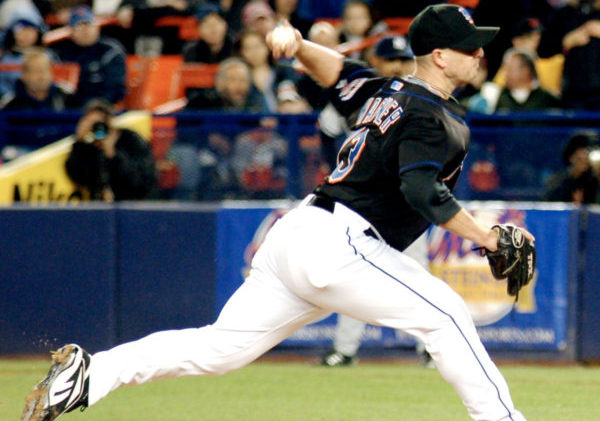
MMO: I find that a bit comical because you were a guy that was open, honest and available. The fact that writers would hold grudges over your outspokenness or anything like that without focusing on your overall game is preposterous.
Billy: I agree. The funny thing is the guys that have no vote are the ones who say the same thing. I think the [Jon] Heyman’s and guys like that, they’re the same people who said they would never vote for anybody with speculation to PEDs and stuff like that. Now you see the same people that told me and told everybody else they weren’t going to vote for those guys, and now they’re starting to vote for those guys.
Do what you’re going to do but I think that becomes political. It’s a political business and I would never be good in politics, that’s for sure. Those things don’t benefit me very much.
MMO: Since you retired from the game you got into coaching at the Miller School. How did you get involved with coaching?
Billy: I retired because my boys were getting to an age where I didn’t want to miss out on their middle and high school years. When I retired, Will (son) was just about to go into eighth grade. It ended up that a job came open right when he was about to go into the eighth grade. I took the coaching job and started a JV at a small private school in Charlottesville called the Miller School.
Since then we’ve built it up and created a few more things and it’s been enjoyable. Everything that I’ve been through – all the mistakes I’ve made and handling issues – has allowed me to talk to the kids and go, ‘Hey, you know, you probably shouldn’t handle it like this. Or, I would handle it like that.’ I think that, for the most part, has helped me all through the experiences.
I think the biggest pleasure I’ve had was being a coach because I get the opportunity to talk with the kids about pro ball. I’ve had a lot of guys that have had the opportunity to play pro ball come through my school, and I talk to them about how to handle certain things and the temptations of steroids and all these things helped me to be able to talk to these guys from being something they don’t want to be.
I’ve enjoyed coaching, I’ve gotten to see my son win a state championship and now he’s a freshman at Liberty. Now I’ve got my middle son who’s working his way to get to college and my daughter is playing basketball. Baseball gave me the opportunity to do a lot of things for a lot of people.
MMO: Have you given any thought to pursuing a coaching job in the majors one day?
Billy: No, I could never imagine that. I think it’s such a tough business and I can’t even imagine coaching someone like me: Type-A and headstrong. I was blessed to have some of the greatest coaches to be around me and to learn from. But I don’t know if kids are that way anymore, I see it in high school.
I know high school, college and pro ball would be very difficult for me to sit back to deal with those guys.
MMO: Who was the toughest hitter you faced in your career?
Billy: There’s a lot! I don’t know if there’s honestly one. Miguel Olivo was a guy that stuck out. He hit about 6.000 off of me! And it was so funny because we would joke about it.
I remember being in a game – and I think it was only a few times that he had a chance to influence the game – and there was a bunch of times that it seemed like we didn’t face each other when the game was on the line. But he would wear me out. He would hit home runs; I remember throwing him a knuckleball and saying, ‘I can’t get this guy out!’ I was trying to get him out somehow!
He knew and I knew and as soon as he stepped up [to the plate] he’d smile. It was funny.
MMO: When you look back on your career, Billy, what are you most proud of?
Billy: It’s funny, the biggest thing now is that I did it the right way. I did it the clean way, there was never an excuse. I never made an excuse about the stuff that went on and just being accountable. At the end of the day, I’m the same today as when I started in the game. I didn’t change to accommodate or be something that I wasn’t.
I did it the clean way and I did it the right way.
MMO: Thank you very much for your time today, Billy. It was great to speak with you.
Billy: I appreciate that, Mathew. Thanks a lot.
Follow Billy on Twitter, @wagsk13wjs_e


